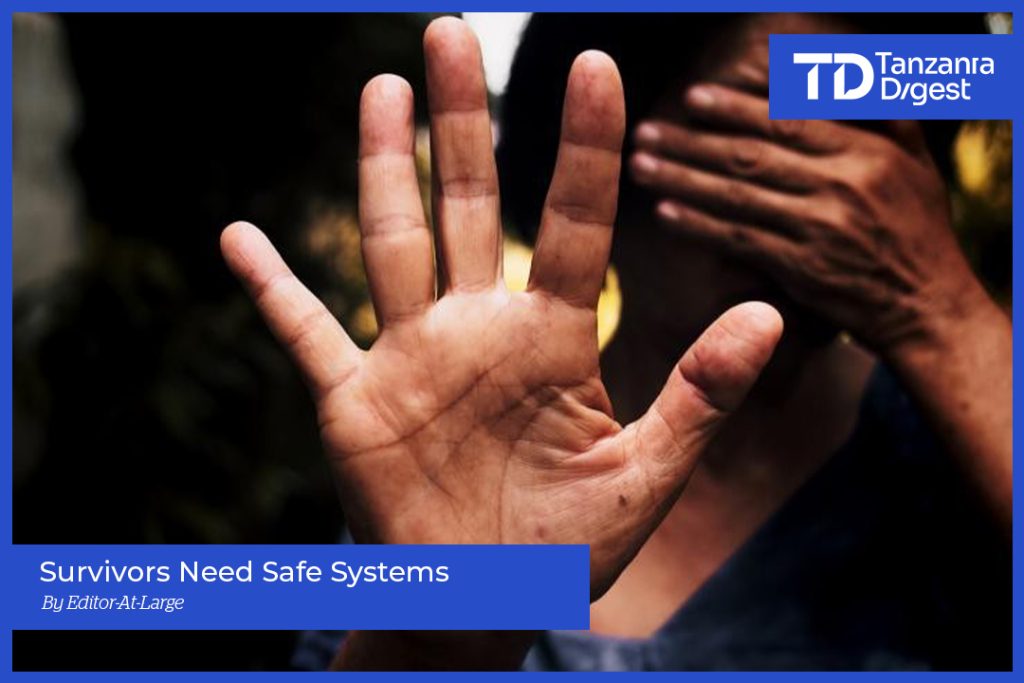Introduction
In Tanzania, gender-based violence (GBV) and assault remain persistent threats to the safety and dignity of women and girls. While laws and policies exist to address such violence, systemic barriers, societal stigma and slow institutional response often prevent survivors from receiving justice. For progress to be meaningful, victims must be able to report abuse without fear – and with confidence that authorities will act swiftly and fairly.
A Story That Demands Action
In a deeply disturbing case that recently unfolded in Jambiani, Zanzibar, a Tanzanian woman was attacked in what appears to be a premeditated and targeted assault. After a night of dining and fun with her husband at Shanga Restaurant in Paje, she returned to her hotel – La Paradis – where she was followed by three African American women. The group reportedly forced their way past the watchman and entered the premises uninvited.
Inside the hotel, the woman was physically assaulted by one of the attackers – Ashley-Marie Weston, known locally as the owner of The Box by Ashley in Stone Town, Zanzibar. Eyewitnesses who came to stop the fight report that Weston shouted: “I will kill you, you will know who I am!” as she assaulted the woman, while the other two women, Danielle Childs and Crystal Rivera, cheered her on.
Despite the seriousness of the attack, the victim reported the incident to authorities – and yet, two days later, none of the perpetrators have been arrested. This delay sends a dangerous message: that violence can be met with impunity, and that victims may not be protected even when they come forward.
Understanding the Barriers to Reporting
This case reflects a broader pattern seen across Tanzania:
- Power and privilege dynamics: When perpetrators are perceived as powerful – due to wealth, foreign status, or influence – victims often believe they won’t be taken seriously.
- Delayed response from law enforcement: Even when reports are made, a lack of urgency from authorities erodes trust and discourages other survivors from coming forward.
- Community silence and fear of retaliation: The threat “you will know who I am” is not just an act of intimidation – it’s a calculated attempt to silence and terrify.
How Tanzania Can Create Safer Reporting Pathways
- Community-Based Reporting Hubs
Establish trauma-informed support centres in high-traffic and tourist areas. Staffed with trained legal and psychosocial professionals, these hubs would allow survivors to report safely, access medical care, and receive legal advice away from traditional police stations.
- Rapid Response and Accountability Protocols
Law enforcement must operate under clear protocols for GBV cases—including immediate arrest or investigation when physical assault has been reported and documented. A 48-hour window without arrest sends the wrong signal to both victims and perpetrators.
- Digital Reporting and Monitoring Tools
Anonymous digital platforms should be expanded to include real-time case tracking. Survivors and advocates must be able to monitor the progress of investigations to ensure accountability.
- Training and Accountability for Security Staff
Hotels, restaurants, and tourist establishments must implement GBV response training for their staff. Watchmen and hotel workers should know how to intervene and report safely and legally.
- Protection and Relocation Services for Victims
Survivors should not have to fear retaliation after reporting. Short-term protection services – including relocation support and legal shields – should be made available through government or NGO partnerships.
- Diplomatic and Legal Coordination for Foreign Perpetrators
When foreigners commit crimes in Tanzania, their status should not shield them from justice. Government and legal systems must collaborate with embassies to ensure foreign nationals are held accountable under Tanzanian law.
Conclusion
The assault in Paje is more than a single act of violence – it’s a snapshot of the systemic failures that many Tanzanian women face when seeking justice. The fact that the victim had the courage to report the crime, yet no arrests have been made days later, is both troubling and unacceptable.
This moment must serve as a call to action: Justice delayed is justice denied. If we do not act with urgency and compassion for survivors, we reinforce a culture of silence, fear, and impunity.
Call to Action
To the authorities: act decisively. To the community: stand with survivors. And to civil society: demand systems that protect, not punish, the brave individuals who speak out. Only when reporting is safe, respected, and met with real consequences, can we begin to dismantle the culture of gender-based violence in Tanzania.

